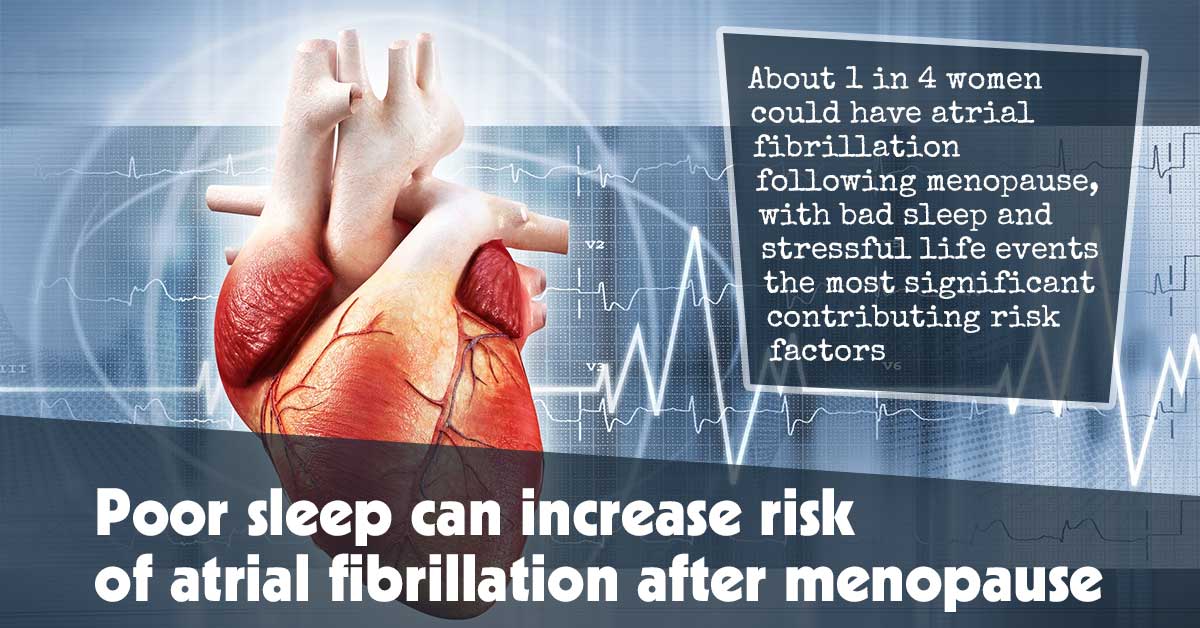Inadequate Sleep May Heighten Atrial Fibrillation Risk Post-Menopause
According to one study, approximately one out of every four women could develop atrial fibrillation after menopause; poor sleep, stress and life events being the key risk factors.
Atrial fibrillation, or irregular heart rhythms, could result in heart failure, stroke, blood clots or other cardiovascular issues. Affecting predominantly older individuals, the American Heart Association anticipates that by 2030 over 12 million will have atrial fibrillation.
Women between 50 and 79 from the Women’s Health Initiative, an extensive U.S. study, completed over 83,000 questionnaires that answered various categories related to insomnia, social support, optimism and stressful life events.
Questions related to life events that cause distress were focused around domestic, sexual, verbal, or physical abuse; financial pressure; divorce proceedings; illness / terminal illness diagnosis/treatment and grieving the death of loved ones.
Questioning regarding sleeping habits related to overall quality, frequent awakenings during the night and difficulty falling asleep.
Questions related to social supports and outlook included having daily chores helper; having hope that good things would come, having friends to discuss stressful or difficult experiences with and being there during stressful or challenging moments.
This study revealed, after approximately 10 years of follow up, that:
Approx. 23,954 women had atrial fibrillation.
An experimental two-cluster system (the strain cluster and stress cluster).
Each additional insomnia scale point increases your chance of atrial fibrillation by four percent while each additional stressful life event scale point increases it by two.
Brain and Heart Relationship has long been recognized, as has its correlations with various disorders. Atrial fibrillation is an electrical conduction system disorder susceptible to hormonal fluctuations associated with poor sleep or stress. These pathways likely account for any connection between insomnia and stress and atrial fibrillation.
Stressful life events, poor sleep and feelings like feeling overwhelmed by circumstances, anxiety or depression may all play a part in increasing atrial fibrillation risk as women age. Unfortunately it’s difficult to know whether these factors cumulatively add up over time and increase atrial fibrillation risk as women mature.
Chronic stress has not been reliably linked with atrial fibrillation; one limitation of this study was its reliance on self-reported questionnaires used at the start of the investigation.
Stressful life events may be devastatingly impactful; however, their lasting impact may not always be apparent. Further studies must be performed in order to confirm these relationships and assess if tailored stress-relief treatments could reduce atrial fibrillation risks.
